Test Bank for Research Methods in Criminal Justice and Criminology, Callie Marie Rennison, Timothy C. Hart
$35.00
Test Bank for Research Methods in Criminal Justice and Criminology, Callie Marie Rennison, Timothy C. Hart ,
Category: Test Bank
Test Bank for Research Methods in Criminal Justice and Criminology, Callie Marie Rennison, Timothy C. Hart ,
Table of Contents
Preface
Acknowledgments
About the Authors
PART 1 GETTING STARTED
Chapter 1 Why Study Research Methods?
Introduction
Why Are Research Methods Important?
Typical Stages of Research
Essential Role of Ethics in Research
Researcher Case Studies and a Road Map
Chapter Wrap-Up
PART 2 SETTING THE STAGE FOR YOUR RESEARCH
Chapter 2 Identifying a Topic, a Purpose, and a Research Question
Introduction
Why Identify a Topic, a Purpose, and a Research Question?
How to Identify a Research Topic
How to Identify the Purpose/ Goal of Research
Gathering More Information and Refining the Topic
How to Construct the Research Question
Common Pitfalls When Developing Topics, Purposes, and Research Questions
Ethical Considerations When Developing Your Topic, Purpose, and Research Question
IRB Expert—Sharon Devine, JD, PhD
Chapter Wrap-Up
Chapter 3 Conducting a Literature Review
Introduction
Why Conduct a Literature Review?
A Road Map: How to Conduct a Literature Review
About Sources
Finding Primary or Original Sources
Writing the Literature Review
Common Pitfalls of Literature Reviews
Ethics and the Literature Review
Literature Review Expert—Sean McCandless, PhD
Chapter Wrap-Up
PART 3 DESIGNING YOUR RESEARCH
Chapter 4 Concepts, Conceptualizations, Operationalizations, Measurements, Variables, and Data
Introduction
Why Focus on Concepts, Conceptualizations, Operationalizations, Measurements, Variables, and Data?
What Are Concepts?
What Is Conceptualization?
What Is Operationalization?
What Are Variables?
What Are Measures?
What Are Data?
Overview of the Road From Concepts to Variables
Common Pitfalls in Concepts, Conceptualizations, Operationalizations, Measurements, Variables, and Data in Research Design
Ethics Associated With Concepts, Conceptualizations, Operationalizations, Measurements, Variables, and Data
Concepts, Conceptualizations, Operationalizations, Measurements, Variables, and Data Expert— Brenidy Rice
Chapter Wrap-Up
Chapter 5 Sampling
Introduction
Why Is Sampling Important?
What Is Sampling?
Populations and Samples
Census or a Sample?
Unit of Analysis
Ecological Fallacy
Individualist Fallacy
Choosing a Sampling Approach
How Large Should My Sample Be?
Common Pitfalls Related to Sampling
Ethics Associated With Sampling
Sampling Expert—Sam Gallaher, PhD
Chapter Wrap-Up
PART 4 COLLECTING YOUR DATA
Chapter 6 Research Using Qualitative Data
Introduction
Why Conduct Research Using Qualitative Data?
What Is Research Using Qualitative Data?
Considerations: Research Using Qualitative Data
Approaches Used to Gather Qualitative Data
Recording Qualitative Data
Organizing and Analyzing Qualitative Data
Common Pitfalls in Research Using Qualitative Data
Ethics Associated With Research Using Qualitative Data
Qualitative Data Research Expert—Carol Peeples
Chapter Wrap-Up
Chapter 7 Survey Research
Introduction
Why Conduct Survey Research?
What Are Surveys?
General Steps in Survey Research
Surveys Across Research Purposes
How Are Surveys Distributed?
Designing Your Own Survey
Survey Administration
Easy-to-Use Survey Software
Common Pitfalls in Survey Research
Ethical Considerations in Survey Research
Surveying Expert—Bridget Kelly, MA
Chapter Wrap-Up
Chapter 8 Experimental Research
Introduction
Why Conduct Experimental Research?
What Is Experimental Research?
True Experiments
Validity
Reliability
Beyond True Experiments
Pre-Experimental Research
Quasi-Experimental Research
Natural Experiments
Common Pitfalls in Experimental Research
Ethics and Experimental Research
Experimental Research Expert—Chris Keating, PhD
Chapter Wrap-Up
Chapter 9 Research Using Secondary Data
Introduction
Why Conduct Research Using Secondary Data?
What Are Secondary Data?
Frequently Used Secondary Data
Disadvantages of Using Secondary Data
Reporting Findings From Secondary Data Analysis
Common Pitfalls in Secondary Data Analysis
Ethics Associated With Secondary Data Analysis
Secondary Data Expert— Jenna Truman, PhD
Chapter Wrap-Up
Chapter 10 GIS and Crime Mapping
Introduction
Why Conduct Research Using GIS and Crime Mapping Techniques?
What Is GIS?
What Is Crime Mapping and Analysis?
Crime Analysis in Academic Research
Reporting Findings From GIS and Crime Mapping Studies
Common Pitfalls in GIS and Crime Mapping Analysis
Ethical Considerations in GIS and Crime Mapping Research
GIS and Crime Mapping Expert— Henri Buccine-Schraeder, MA
Chapter Wrap-Up
Chapter 11 Evaluation Research
Introduction
Why Use Evaluation Research?
What Is Evaluation Research?
Types of Evaluation Research
Distinctive Purposes of Evaluation and Basic Research
Characteristics of Effective Evaluations
Common Pitfalls in Evaluation Research
Ethics Associated With Evaluation Research
Evaluation Research Expert— Michael Shively, PhD
Chapter Wrap-Up
PART 5 ANALYSIS, FINDINGS, AND WHERE TO GO FROM THERE
Chapter 12 Analysis and Findings
Introduction
Why Analysis?
How Should Data Be Analyzed?
Analysis of Quantitative Data
Qualitative Data Analysis
Data Analysis Software
Alternative Analytic Approaches
Reporting Findings From Your Research
Common Pitfalls in Data Analysis and Developing Findings
Ethics Associated With Analyzing Your Data and Developing Your Findings
Analysis and Findings Expert— Sue Burton
Chapter Wrap-Up
Chapter 13 Making Your Research Relevant
Introduction
Why Conduct Policy-Relevant Research?
What Is Policy-Relevant Research?
What Is Policy?
Who Are Policy Makers?
The Policy Process
Challenges of Getting Research to Policy Makers
Maximizing Chances of Producing Policy-Relevant Research
Common Pitfalls in Producing Policy-Relevant Research
Ethics and Conducting Policy Relevant Research
Policy Expert—Katie TePas
Chapter Wrap-Up
Chapter 14 Research Methods as a Career
Introduction
Why Research Methods as a Career?
Where Do I Get Started?
Career Search Documents
Public- Versus Private-Sector Jobs
Where to Look for a Career
Interviewing Well
Pitfalls and Career Searches
Ethics and Career Searches
Research Methods as a Career Expert—Nora Scanlon, MA
Chapter Wrap-Up
Appendix
Glossary
References
Index
Be the first to review “Test Bank for Research Methods in Criminal Justice and Criminology, Callie Marie Rennison, Timothy C. Hart” Cancel reply
Related products
$35.00
$35.00
Test Bank
$35.00

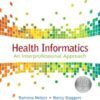
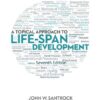
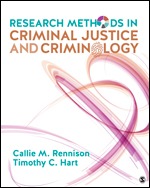
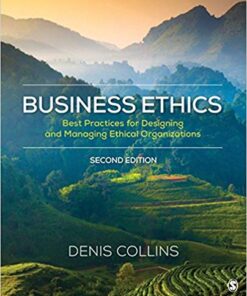

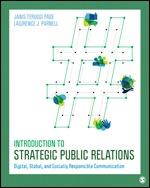




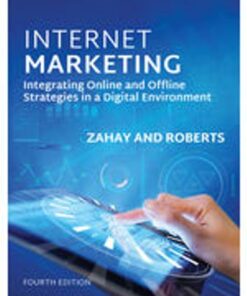
Reviews
There are no reviews yet.